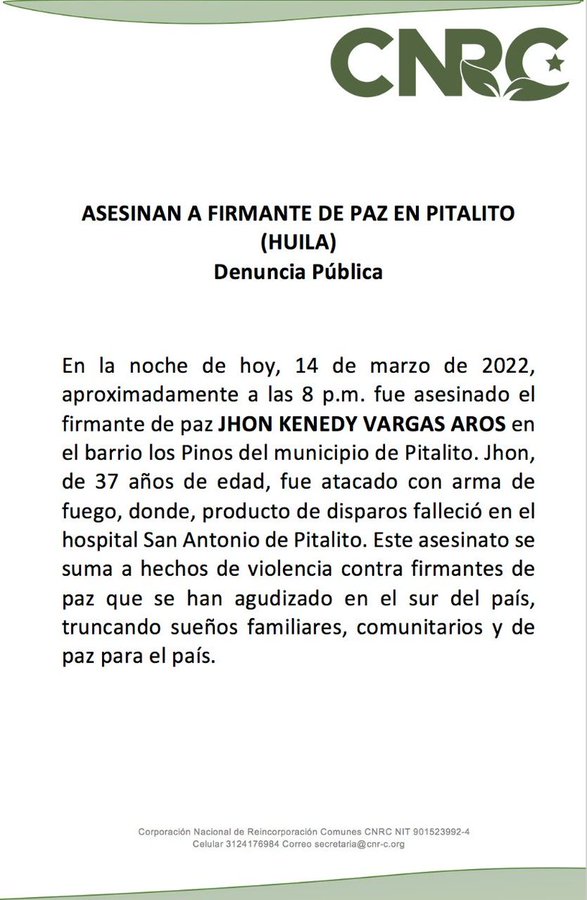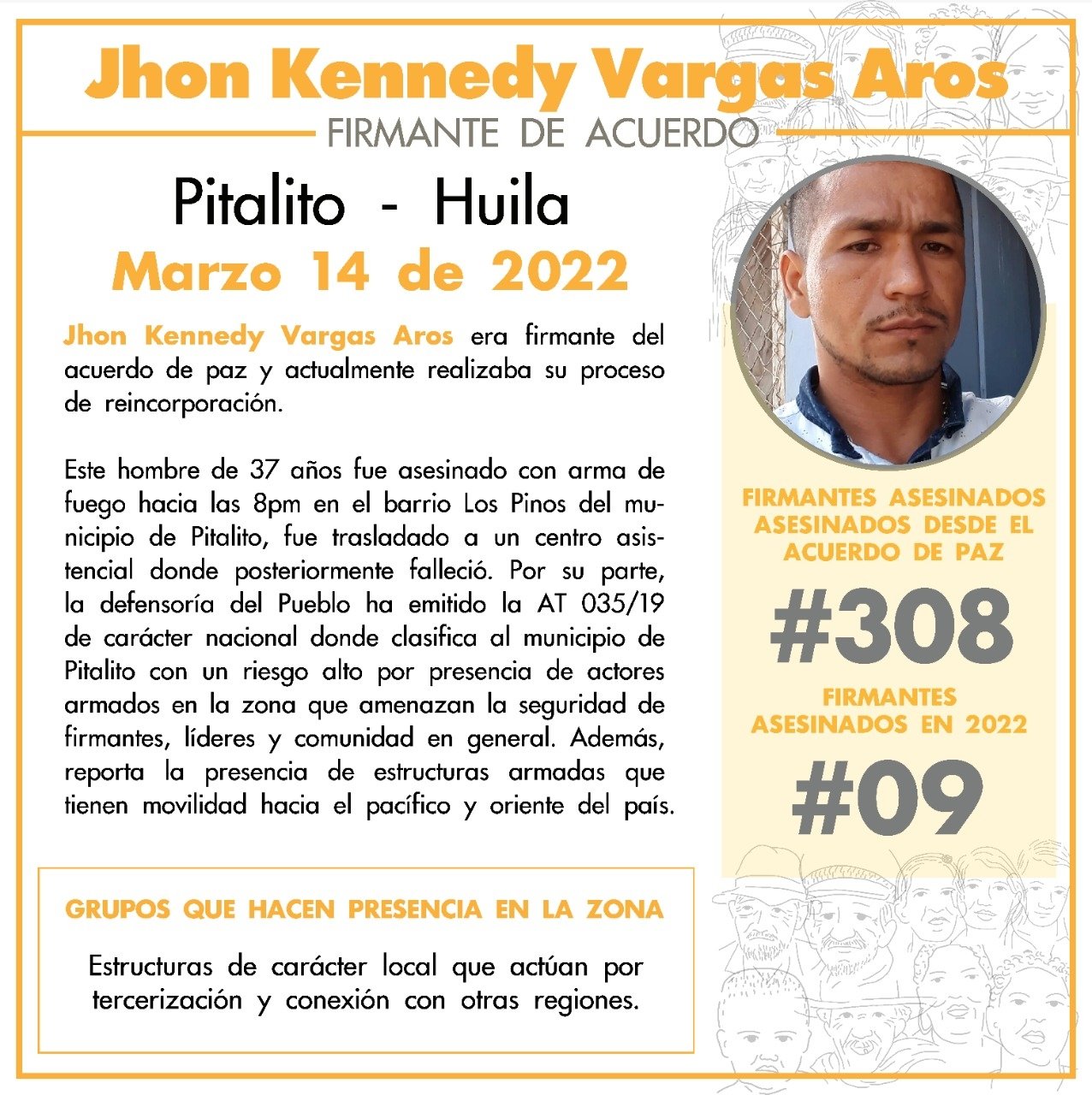
In the Los Pinos neighborhood of the municipality of Pitalito (Huila), the signatory of the Peace Agreement between the Colombian State and the former FARC guerrillas in 2016, Jhon Kennedy Vargas Aros, 37, was assassinated. The incident occurred at 8 p.m. last Monday, March 14.
His assassination is the ninth executed against peace signatories during 2022 and 30th since his signing, according to figures from the Institute for Development and Peace Studies (Indepaz). The former combatant, born in San Vicente del Chaguan, was moving around the area in his private vehicle, when armed men boarded him and shot him repeatedly while he was driving.
Vargas Aros was currently undergoing his reintegration process in the department of Huila and although he was transferred to a healthcare center, he died of his injuries. The first authority to speak out was the mayor of Pitalito, Edgar Muñoz, who said, “So far there are no captures, the authorities are collecting information. This person resided in the Las Acacias sector, a popular sector of our city,” he said.
For its part, from the National Corporation for Common Reincorporation, a statement was issued in which they say “this murder is in addition to the acts of violence against peace signatories that are worsening in the south of the country, truncating family, community and peace dreams in the country.”

In August 2019, the Ombudsman's Office had issued Early Warning 035-19, where it warned that the municipality of Huila is at high risk for ex-combatants, due to the presence of armed groups that threaten the security of this group, as well as social leaders and human rights defenders.
After the signing of the Peace Agreement, other illegal armed groups or the dissidents of the same guerrilla group were relocated in this area, “the stigmatization of the ex-combatant population and the ignorance of the population in the process of reintegration”, are the main reasons for the violence against the demobilized population, according to the of the Public Prosecutor's Office
In the same Early Warning, the Office of the Ombudsman had asked the National Protection Unit (UNP) to implement pedagogical actions in municipalities and departments, where members of the Commons Party are present, defined in specific actions to assess possible risks that arise individually and collectively on former FARC combatants.

The latest quarterly report of the UN Verification Mission in Colombia (September 25 to December 27, 2021), reveals that five years after the signing of the Peace Agreement in Colombia, violence against former combatants remains the greatest threat to their transition to civilian life.
The document reveals that violence against social leaders, ex-combatants, and communities has been concentrated mainly in 30 municipalities, most of them prioritized for the implementation of the Agreement. “While killings of ex-combatants have decreased by 27% in the last year (2021), the Mission has been able to confirm a growing trend of threats by illegal armed groups against those participating in collective initiatives, affecting their productive and cooperative projects,” the report highlights.
In fact, according to the data held by the Verification Mission, almost 59% of the more than 13,000 ex-combatants, including 64% of women ex-combatants, participate in productive projects. “Colombia is demonstrating the value of investing in peace while serving as an example that violent conflict can be ended through dialogue and that societies can heal the wounds of war and offer development opportunities to those who need them most,” concludes the latest UN report.
KEEP READING:
Últimas Noticias
Debanhi Escobar: they secured the motel where she was found lifeless in a cistern

The oldest person in the world died at the age of 119

Macabre find in CDMX: they left a body bagged and tied in a taxi
The eagles of America will face Manchester City in a duel of legends. Here are the details

Why is it good to bring dogs out to know the world when they are puppies




